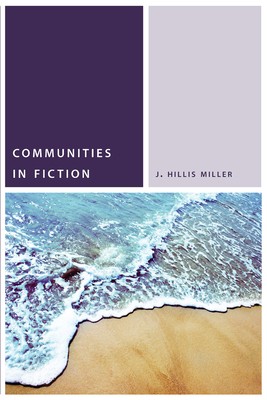
- We will send in 10–14 business days.
- Author: J Hillis Miller
- Publisher: Fordham University Press
- ISBN-10: 082326310X
- ISBN-13: 9780823263103
- Format: 15.5 x 23.1 x 3.1 cm, kieti viršeliai
- Language: English
- SAVE -10% with code: EXTRA
Reviews
Description
Communities in Fiction reads six novels or stories (one each by Trollope, Hardy, Conrad, Woolf, Pynchon, and Cervantes) in the light of theories of community worked out (contradictorily) by Raymond Williams, Martin Heidegger, and Jean- Luc Nancy.
The book's topic is the question of how communities or noncommunities are represented in fictional works. Such fictional communities help the reader understand real communities, including those in which the reader lives. As against the presumption that the trajectory in literature from Victorian to modern to postmodern is the story of a gradual loss of belief in the possibility of community, this book demonstrates that communities have always been presented in fiction as precarious and fractured. Moreover, the juxtaposition of Pynchon and Cervantes in the last chapter demonstrates that period characterizations are never to be trusted. All the features both thematic and formal that recent critics and theorists such as Fredric Jameson and many others have found to characterize postmodern fiction are already present in Cervantes's wonderful early-seventeenth-century "Exemplary Story," "The Dogs' Colloquy." All the themes and narrative devices of Western fiction from the beginning of theprint era to the present were there at the beginning, in Cervantes Most of all, however, Communities in Fiction looks in detail at its six fictions, striving to see just what they say, what stories they tell, and what narratological and rhetorical devices they use to say what they do say and to tell the stories they do tell. The book attempts to communicate to its readers the joy of reading these works and to argue for the exemplary insight they provide into what Heidegger called Mitsein being together in communities that are always problematic and unstable.
EXTRA 10 % discount with code: EXTRA
The promotion ends in 21d.08:56:18
The discount code is valid when purchasing from 10 €. Discounts do not stack.
- Author: J Hillis Miller
- Publisher: Fordham University Press
- ISBN-10: 082326310X
- ISBN-13: 9780823263103
- Format: 15.5 x 23.1 x 3.1 cm, kieti viršeliai
- Language: English English
Communities in Fiction reads six novels or stories (one each by Trollope, Hardy, Conrad, Woolf, Pynchon, and Cervantes) in the light of theories of community worked out (contradictorily) by Raymond Williams, Martin Heidegger, and Jean- Luc Nancy.
The book's topic is the question of how communities or noncommunities are represented in fictional works. Such fictional communities help the reader understand real communities, including those in which the reader lives. As against the presumption that the trajectory in literature from Victorian to modern to postmodern is the story of a gradual loss of belief in the possibility of community, this book demonstrates that communities have always been presented in fiction as precarious and fractured. Moreover, the juxtaposition of Pynchon and Cervantes in the last chapter demonstrates that period characterizations are never to be trusted. All the features both thematic and formal that recent critics and theorists such as Fredric Jameson and many others have found to characterize postmodern fiction are already present in Cervantes's wonderful early-seventeenth-century "Exemplary Story," "The Dogs' Colloquy." All the themes and narrative devices of Western fiction from the beginning of theprint era to the present were there at the beginning, in Cervantes Most of all, however, Communities in Fiction looks in detail at its six fictions, striving to see just what they say, what stories they tell, and what narratological and rhetorical devices they use to say what they do say and to tell the stories they do tell. The book attempts to communicate to its readers the joy of reading these works and to argue for the exemplary insight they provide into what Heidegger called Mitsein being together in communities that are always problematic and unstable.


Reviews